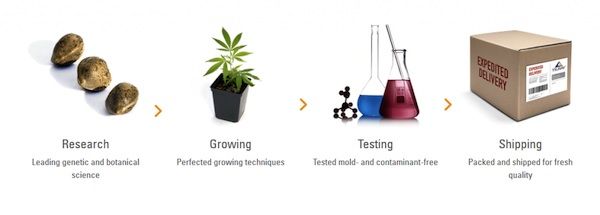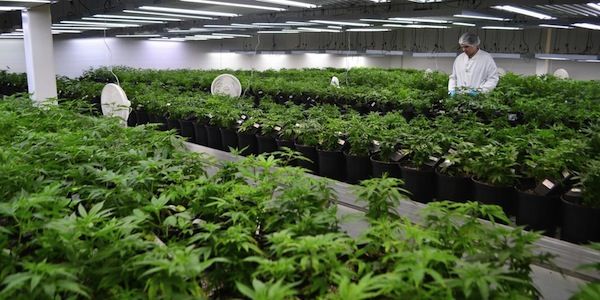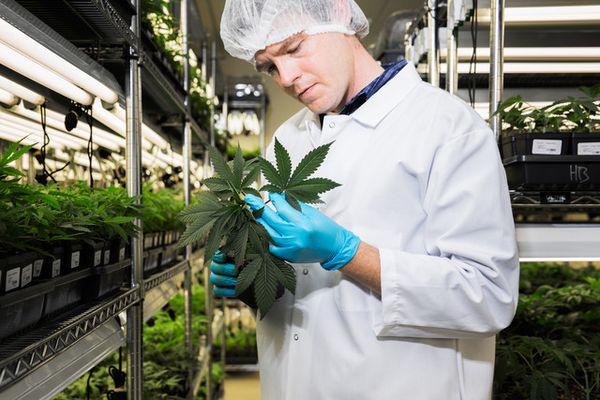- For the past few months representatives of Canadian marijuana companies have been going door-to-door, cannabis in tow, striving to convince doctors at hospitals and clinics of the benefits of this product for therapeutic use. It is no easy task.

"Doctor, I've come to bring you the best remedy for your patients: medical marijuana. Why don't you try it out? They will thank you for it." This could be the start of a conversation at any Canadian doctor's office. The goal? To convince doctors to prescribe cannabis-based drugs.
Medreleaf, Tweed, Tilray, Whistler Medical Marijuana Corp. and The Peace Naturals Project Inc. are some of Canadian companies licensed to sell or supply medicinal marijuana to those authorized to buy it, and all are making a great effort to bring the medical sector around to the industry.
Some consider these pressure tactics on physicians, while others believe see it as an effective approach – and an opportunity provided for by Canadian law - to act in the same way as pharmaceutical companies.


Those who oppose this practice, like Dr. Louis Hugo Francescutti, president of the Canadian Medical Association, believe that cannabis-based therapeutic treatments have not yet been sufficiently tested to ensure that they really work on certain pathologies. "It's something that traps doctors between patients who need marijuana and vendors applying pressure to make sales."
Now these companies are hiring top advertising companies and well-trained sales reps exclusively for this purpose. But Francescutti perceives "a lack of medical evidence that cannabis products are effective."
MedReleaf complains that patients do not have access to therapeutic cannabis "even though it's their right." Thus, its website features a section just for doctors, offering them a patient care coordination service: "we are the partners you can count on to help your patients."
They are very clear: the use of this product to alleviate certain diseases depends on the pathology and the person. That's why they consider it is necessary to address each therapeutic consumer in an individualized manner.

This company reports having experience and exclusive access to data on the effectiveness and adequacy of medical marijuana in more than 7,000 patients. And it promises to carry out studies with qualified personnel, as their professional advisers "have in-depth knowledge on aspects such as the components of the strains and their therapeutic effects."
Francescutti, however, believes that the current situation has nothing to do with the medicinal properties of marijuana, but rather with people who "want to smoke." He firmly believes that the judicial system was "deceived by the idea that this product has significant health benefits." According to Francescutti some doctors are threatened by patients and by the representatives of these companies.
Meanwhile another cannabis company, Whistler Medical Marijuana, believes that medical marijuana offers an option to Canadians seeking an alternative to the pharmaceutical companies' major drugs and medications.
This company focuses on medical marijuana through organic farming crop production, and its objective is to achieve medical marijuana production levels capable of competing with conventional products. It also staffs a team of experts with over 20 years of experience in high-tech organic farming systems.
Tweed is another of the companies striving to offer a medical cannabis production and consulting service, where they firmly believe that all professionals should consider the welfare of their patients as their main challenge.


Thus, they aim to help physicians in all questions related to marijuana. They even offer the possibility of reading and signing a medical authorization for the use of marijuana for therapeutic purposes, with instructions for the patient and for the expert prescribing the product they offer. And they provide all the legal and medical documentation necessary so that the medical consumers and expert can consult it.
And what do physicians propose? More clinical trials to verify marijuana's true effects on conditions such as depression and joint pain. "If those trials are repeated a thousand times" it will be ascertained "whether marijuana is so effective." But Francescutti acknowledges that if these tests have not been conducted to date it is precisely due to a lack of funding.
There is a diversity of opinion within the Canadian medical community. More than 66% of doctors believe that it is necessary to provide protection in everything regarding access to medical marijuana and, therefore, that these products should not be prescribed lightly. They also believe that it is necessary to provide special training for this purpose.

A survey by the Canadian Medical Association determined that, among the factors that could prompt doctors to recommend marijuana-based medications to their patients, was the fear that they would end up using cannabis for recreational purposes, and the need to have sufficient information about the risks and benefits of marijuana use for medical purposes. In addition, and more importantly, 80% of respondents said that doctors should have broad powers to prescribe these products for their patients.
Whether companies will ultimately succeed and get doctors to prescribe medical cannabis without so many biases is yet to be seen. What does seem certain, as shown by the survey, is that there is still work to do and fears surrounding the subject. Companies are willing to make every effort to overcome the pharmaceutical challenge. Doctors still approach the issue with considerable caution, while patients patiently await a solution that benefits them.



Comments from our readers
There are no comments yet. Would you like to be the first?
Leave a comment!Did you like this post?
Your opinion about our seeds is very important to us and can help other users a lot (your email address won't be made public).